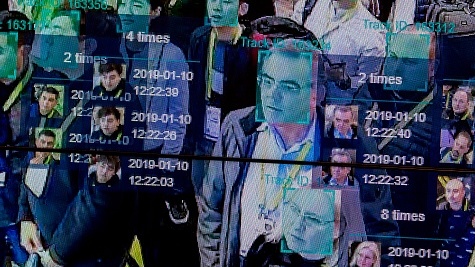Survey results released by the Pew Research Center showed that a majority of U.S. adults trust law enforcement to responsibly use facial recognition technology.
The survey compared the opinions Americans held on facial recognition technology used by three separate groups: law enforcement, corporations and advertisers. Those surveyed were more comfortable with law enforcement using the technology than either of the other groups.
“One of the things we found is that people who have heard more about the technology have higher views of the efficacies,” Aaron Smith, director of Data Labs for the Pew Research Center, said to Fortune Magazine. “I would say people’s awareness of the technology overall is fairly broad but relatively shallow.”
Black respondents were much less likely to trust law enforcement with the technology, with just over 40% stating they would. Younger adults who identified as Democrats also were less likely to be in favor of the idea.
Multiple studies have shown that facial recognition technology is less accurate at correctly identifying Black faces than white ones, with a study being published that tested the demographic factors involved in the performance of 11 different commercial facial recognition systems. In a test done in August, the American Civil Liberties Union said facial recognition technology incorrectly matched 26 California lawmakers with images from an “arrest photo database," with more than half of the misidentified politicians being “lawmakers of color.”
With recent events involving law enforcement gaining more coverage, Blacks and younger generations of all races have grown more distrusting of the police force in general. That correspondence has left Smith with the belief that the results of the survey are predictable.
“People’s perceptions [about facial recognition] map closely to their views about law enforcement and their trust in law enforcement more broadly,” Smith said.
The survey of 4,272 U.S. adults was conducted in June and has a margin of error of 1.9 percentage points.
